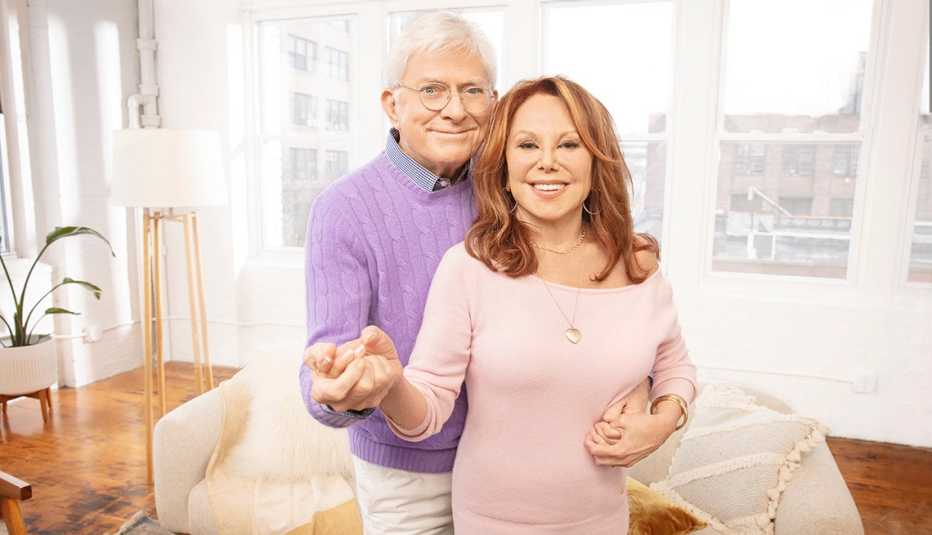AARP Hearing Center
Spending time together is important for healthy relationships, but COVID-19 has brought many couples too close for comfort and driving marriages to the breaking point.
With social distancing rules and quarantines, traditional in-person therapy isn’t always an option. So clashing couples are turning to virtual therapy instead.
“With marriage counseling online, you don’t have two people rushing out of work and fighting traffic to make it to the meeting — or have one person sitting on my couch alone, being annoyed that the other person is 15 minutes late for the session,” says Lisa Marie Bobby, a licensed marriage and family therapist, psychologist and board-certified coach based in Denver, who has found more consistency with online appointments than with traditional ones.
Bobby also has experienced a “greater emotional intimacy” between herself and her clients.
“When people are in their own environment … they’re able to be more authentic, to have more time and space to connect with deeper thoughts and feelings,” she says. “I think it feels, even on a subconscious level, safer.”
How does online couples counseling work?
The need for easy access to professional help has soared in past months.
In September, the Journal of Sex & Marital Therapy published a study showing that among individuals in relationships, 34 percent reported some degree of conflict with their romantic partners due to the spread of COVID-19.
From a technological point of view, aside from occasional connectivity issues, virtual counseling is fairly simple to navigate.
“Good lighting, a proper internet connection, and time and space to conduct a private conversation are about all you need,” says Brenna Leslie, a licensed marriage and family therapist in Highland, California.
Some people are so comfortable with the concept, they show up for sessions in their pajamas. Others are more uneasy, particularly because couples who may be quarreling can’t maintain a wide distance from each other and still be captured by the same camera lens.
“A part of the work is to come out of the comfortable, unhealthy cycle they may keep finding themselves in and to move into a place of feeling safe enough to take risks and be vulnerable with each other,” says Jeni Woodfin, a psychotherapist in San Jose, California. “That may mean sitting close sometimes, even if it feels forced or unnatural.”





































































